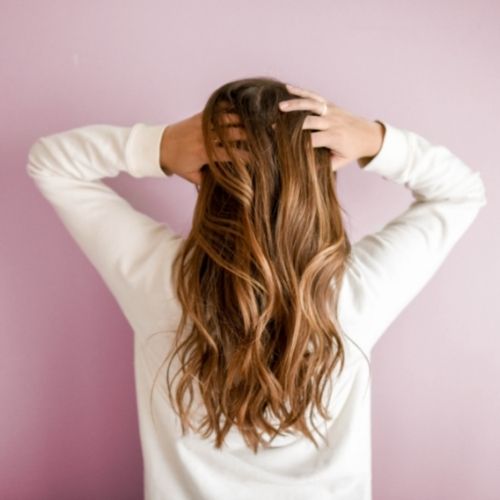
Ever since the world began, since the dawn of civilization, hair has always been taken into great consideration by men and even more so by women.
From the findings of some tombs dating back to ancient Egypt, to the time of the Pharaohs, it emerges how important hair care was for court ladies.
Amphorae containing linseed oil mixed with olive oil and amphorae containing soap root have been found, which these ladies of the time used for the beauty and hygiene of their hair, while women of a more modest social class used wood ash to wash your hair .
In ancient times, a beautiful, thick and luxuriant head of hair meant, in all likelihood, being a strong, well-fed and powerful man; think of the story of Samson grappling with Delilah; Samson who from a very strong man is seen to become, after a haircut, a man of modest strength, ordinary.

The power of hair!
In the Middle Ages hair was considered as the external offshoot of the soul so much so that it was used in great abundance in magic potions that wizards and witches prepared for the most varied uses.
No one ever abandoned fallen or cut hair and everyone took on the task of burning it on the fire with great seriousness so that it did not fall into unfriendly hands, because at the time it was believed that through hair one could perpetrate evil spells and inflict the dreaded evil eye .
Over time, the hair , tied in small locks with multicolored ribbons, became a gift and a token of love to be bestowed on the beloved, who kept it jealously placed in small, splendid and precious cases until his death.
The Duke of Brabant, William IV, is said to have kept over 300 of them.

In the eighteenth century hair became, from an aesthetic point of view, "plastic material" to create the most imaginative and questionable hairstyles; the hairstyle must have amazed the hairdressers of the time.
Unfortunately most of the time the "treatment" to which they subjected their clients' hair deprived them of their locks at an early age!
Here was invented the wig that was all the rage and that all the good people of the time wore.
Poor people sold their healthy hair so that the "wigs" (as wig wearers were called) would continue to amaze their friends at parties which in those days lasted for days and days.
The eighteenth century was also called the Century of Enlightenment because scientific research took off impetuously; to stay on the subject of hair, in that period the hygrometer was discovered in which a small braid of hair of equal thickness was inserted; these hairs, when the climate was dry, released part of the water they contained to the atmosphere by moving a pointer that measured the temperature range; when the climate was humid vice versa the reverse process occurred and the hand moved in the opposite direction.

A century later, doctors had transformed from barber-surgeons into serious professionals.
In the visits to which they subjected their patients, they never failed to subject the hair to a careful "examination" and, to those attentive observers, the hair was able to communicate a series of information on the incubation phases of some diseases, on their evolution in acute phases, on the lack in the body of substances essential for proper hair nutrition.

Today with the advent of modern medicine which has targeted diagnostic tests at its disposal, I am able to evaluate the health conditions of the scalp much more accurately.
Relying on professionals for those who suffer from a hair loss problem today means protecting not only the health of the hair but also their own psychological health .
Today more than ever it is a universally accepted opinion that a man with good hair is more attractive and virile than a bald or semi-bald man.
A man with little hair is generally perceived as modest, fragile, undesirable.
Let's not talk about women, for whom hair, according to surveys on changing customs in the West, is by far in first place as a factor of beauty.
The majority of them would gladly give up their daily make-up in exchange for thick and shiny hair.
Today that women and men are citizens of equal consideration, today that there are almost no more female or male roles, the importance of a beautiful hair emerges for everyone with the same importance.

Currently there are products suitable for taking care of the hair ; what is needed for them to be used in the right way (properties, times, dosages) is the professional advice of experts with experience and specific skills in the trichology sector.
You don't suddenly become a hair expert overnight.
The right Tricologic Institutes offer psychological assistance, because in addition to having technical results, the person who loses, or who has lost significant amounts of hair, must learn to "manage" the problem, tackling it calmly and with determination.
Resigning to losing your hair makes no sense if there are remedies that can, at least, contain and delay the loss for years.
Educating those who lose their hair to treat their scalp correctly is the first step in counteracting its loss; in fact it is extremely rare for a defluvium capitis to occur, on a clean and healthy scalp, with its acid-hydro-lipidic mantle perfectly balanced.
Recreating an ideal habitat will create the conditions for a drastic decrease in abnormal hair loss.
